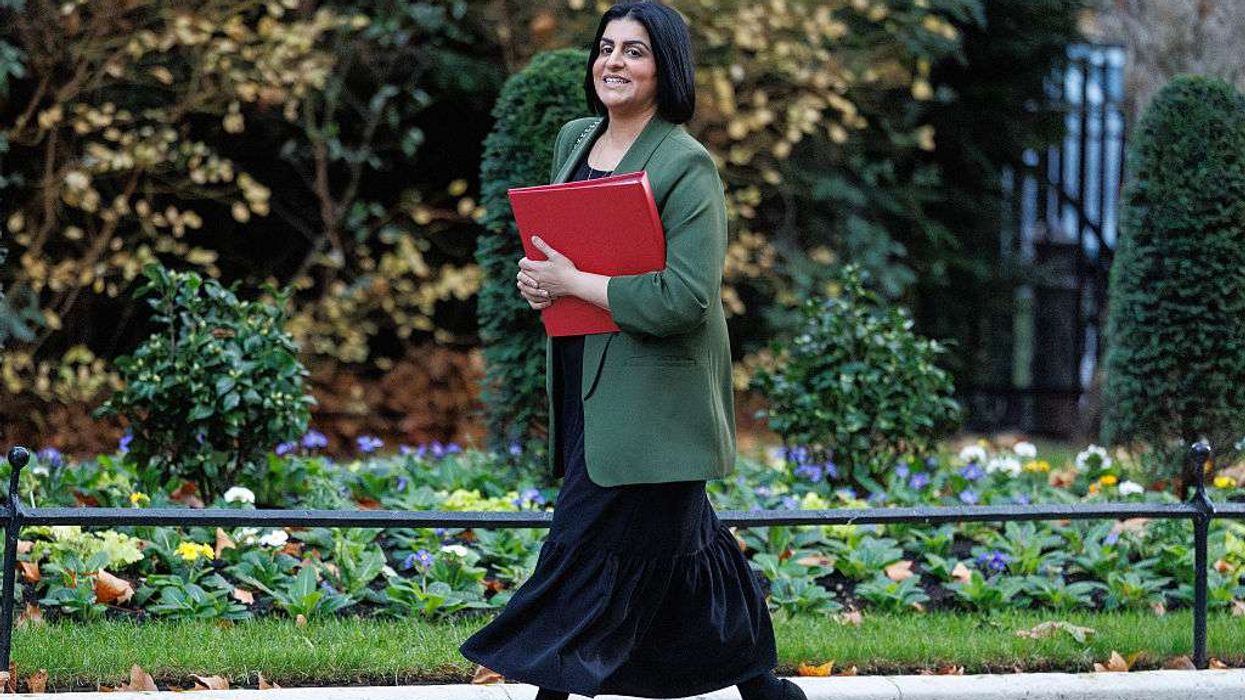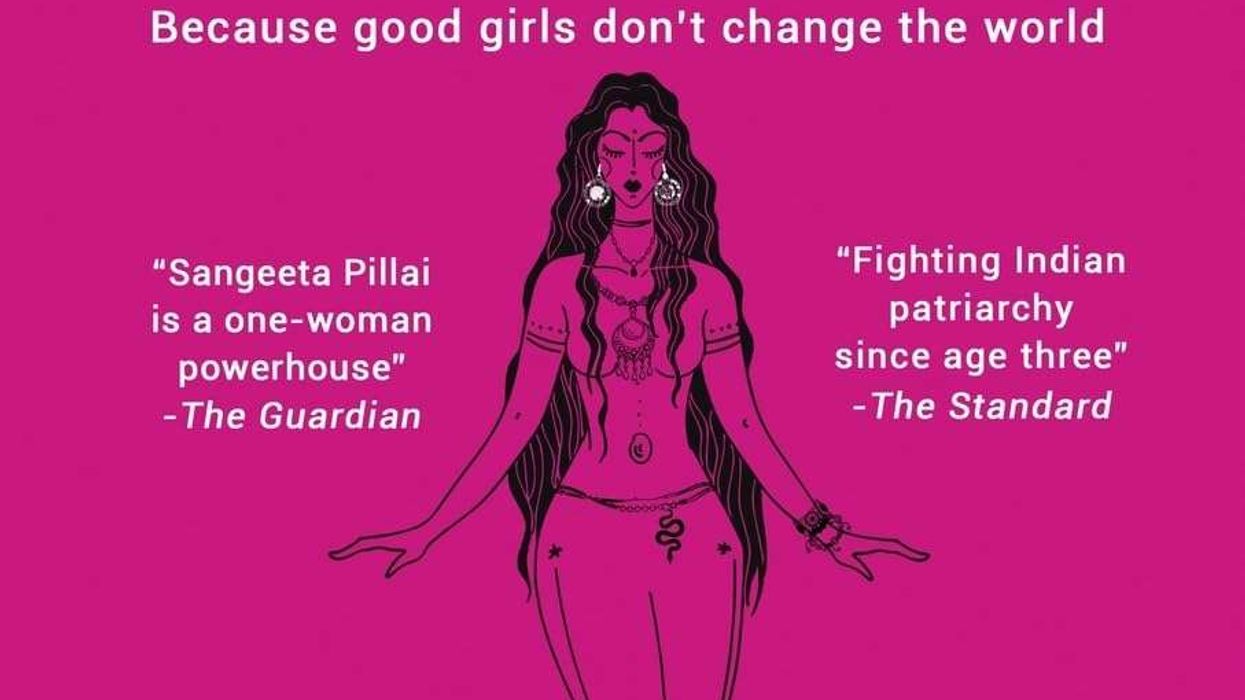GETTING shortlisted for the Financial Times Business Book of the Year from a strong field is quite an achievement, but Raj Shah, “a serial technology entrepreneur and venture capitalist” in the United States, has managed it with Unit X: How the Pentagon and Silicon Valley Are Transforming the Future of War.
The book, which he has co-authored with Christopher Kirchhoff, an expert in emerging technology, takes the reader inside the scientific revolution “that is shaking up the way the US military is supplied and how modern warfare is waged”.
The walkie-talkie bombs that were remotely detonated in the Lebanon is an example.
The book is described as “a riveting inside look at an elite unit within the Pentagon, the Defense Innovation Unit, also known as Unit X – whose mission is to bring Silicon Valley’s technology to America’s military – from the two men who launched the unit”.
Shah, a former director of the unit at the Pentagon, is currently the managing partner of Shield Capital, an investment firm focused on technologies at the nexus of commercial and national security applications. He started his career as an F-16 pilot in the Air National Guard and continues to serve part time.
He obtained an AB (Artium Baccalaureus) degree from Princeton University and an MBA from the University of Pennsylvania.
The Business Book of the Year is sponsored by the FT, along with Shroders. The prize, worth £30,000 and picked each year from a shortlist of six, recognises a book which provides the “most compelling and enjoyable insight into modern business issues”.
Raj ShahThe 10 judges, who include Shriti Vadera, chair, Prudential Plc and the Royal Shakespeare Company, have explained why the book was shortlisted.
They say: “A vast and largely unseen transformation of how war is fought as profound as the invention of gunpowder or advent of the nuclear age is occurring. Flying cars that can land like helicopters, artificial intelligencepowered drones that can fly into buildings and map their interiors, microsatellites that can see through clouds and monitor rogue missile sites – all these and more are becoming part of America’s DIU-fast-tracked arsenal.
“Until recently, the Pentagon was known for its uncomfortable relationship with Silicon Valley and for slow-moving processes that acted as a brake on innovation. Unit X was specifically designed as a bridge to Valley technologists that would accelerate bringing state of the art software and hardware to the battle space.
“Given authority to cut through red tape and function almost as a venture capital firm, Shah, Kirchhoff, and others in the Unit who came after were tasked particularly with meeting immediate military needs with technology from Valley startups rather than from so-called ‘primes’ – behemoth companies like Lockheed, Raytheon, and Boeing.
“Taking us inside AI labs, drone workshops, and battle command centres ‒ and overseas to Ukraine’s frontlines – Shah and Kirchhoff paint a fascinating picture of what it takes to stay dominant in a fastchanging and often precarious geopolitical landscape.
“In an era when America’s chief rival, China, has ordered that all commercial firms within its borders make their research and technology available for military exploitation, strengthening the relationship between Washington and Silicon Valley was advisable. Today, it is an urgent necessity.”
Roula Khalaf, the chair of the judging panel and the first woman to be editor of the FT, said: “Our six finalists, picked from a very strong longlist, focus on some of the most interesting and controversial issues on leaders’ minds, including the quest to achieve better economic growth, the purpose of technology, the evolution of the corporation, and the impact of tribal instincts and improving longevity. It will be a hard task to select a winner from this range of exceptionally interesting and relevant titles.”
Schroders Group chief executive Peter Harrison commented: “In the second year of our partnership with the FT, we have arrived at a shortlist of exceptional books. These are insightful and compelling, written with great skill underpinned by strong research and writing. They raise challenging contemporary issues about the ways in which businesses impact our economies and societies. In doing so, these books highlight the difficult choices business leaders and policymakers face in an era of disruption.”
The shortlisted authors who don’t win when the prize is announced in London on 9 December 2024 will each receive a cheque for £10,000.
The other five shortlisted books are: The Corporation in the Twenty-First Century: Why (almost) everything we are told about business is wrong, by John Kay, “traces the impact on the corporation of the shareholder value movement, the knowledge economy and the digital and services revolution, which is changing the way companies are run”.
The six books shortlisted forthe Financial Times Business Book of the YearTribal: How the Cultural Instincts That Divide Us Can Help Bring Us Together, by Michael Morris, is described as “an examination of the power of tribalism, often used to ill effect, but latent with potential for positive change if leaders in business and politics can harness human instincts”.
Supremacy: AI, ChatGPT and the Race That Will Change the World, by Parmy Olson, “tracks the rivalry between Demis Hassabis of Google DeepMind and Sam Altman of OpenAI, as they sought to apply artificial intelligence to change the world for the better, while Google, Microsoft and others vied for commercial advantage”.
The Longevity Imperative: Building a Better Society for Healthier, Longer Lives, by Andrew J Scott, “proposes ways in which people, policymakers and businesses can establish an ‘evergreen agenda’ to help us make the most of our longer lives”.
Growth: A Reckoning, by Daniel Susskind, “examines the tension between our quest for growth, which can widen inequality and destroy the environment, and the need to preserve what we value”.
Previous Business Book of the Year winners, among them several Asians, include: Amy Edmondson for Right Kind of Wrong: Why Learning to Fail Can Teach Us to Thrive (2023); Chris Miller for Chip War: The Fight for the World’s Most Critical Technology (2022); Nicole Perlroth for This Is How They Tell Me the World Ends: The Cyberweapons Arms Race (2021); Sarah Frier for No Filter: The Inside Story of How Instagram Transformed Business, Celebrity and Our Culture (2020); Caroline Criado Perez for Invisible Women: Exposing Data Bias in a World Designed for Men (2019); John Carreyrou for Bad Blood: Secrets and Lies in a Silicon Valley Startup (2018); Amy Goldstein for Janesville: An American Story (2017); Sebastian Mallaby for The Man Who Knew: The Life and Times of Alan Greenspan (2016); Martin Ford for Rise of the Robots (2015); Thomas Piketty for Capital in the Twenty-First Century (2014); Brad Stone for The Everything Store: Jeff Bezos and the Age of Amazon (2013); Steve Coll for Private Empire: ExxonMobil and American Power (2012); Abhijit V. Banerjee and Esther Duflo for Poor Economics (2011); Raghuram Rajan for Fault Lines (2010); Liaquat Ahamed for The Lords of Finance (2009); Mohamed El-Erian for When Markets Collide (2008); William D Cohan for The Last Tycoons (2007); James Kynge for China Shakes the World (2006); and Thomas Friedman, the inaugural award winner in 2005, for The World is Flat.












